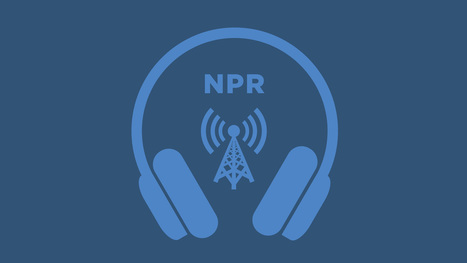NPR's Lulu Garcia-Navarro speaks to media psychologist Pamela Rutledge about how our brains are responding to the pandemic and driving our TV viewing choices. Hint: We're craving predictability.
Research and publish the best content.
Get Started for FREE
Sign up with Facebook Sign up with X
I don't have a Facebook or a X account
Already have an account: Login
 Your new post is loading... Your new post is loading...
 Your new post is loading... Your new post is loading...
|
|















During COVID isolation and stress, we crave social connection and comfort. What better than visiting old "friends" in our favorite sit-coms? We get the neuro benefits of familiar plots, happy endings and characters we care about. It's the next best thing to being there. #mediapsychology